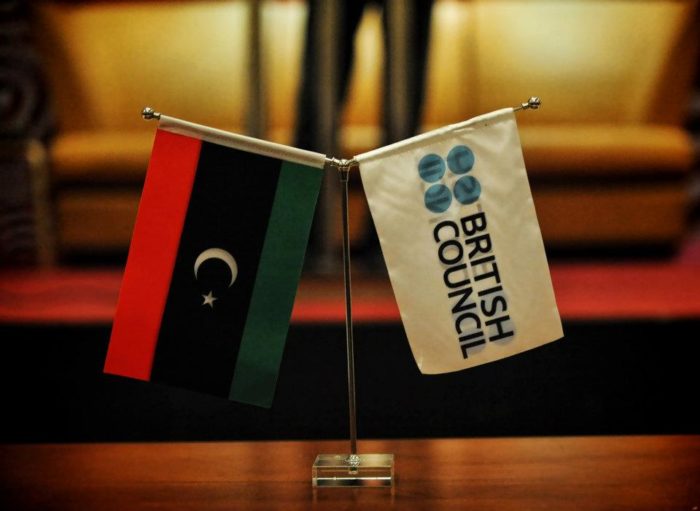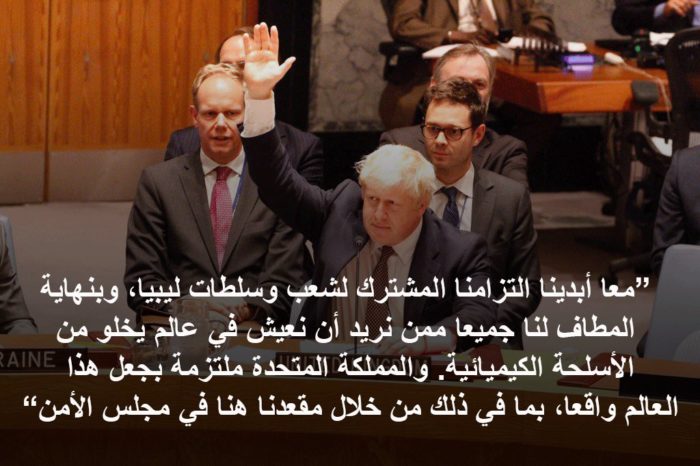3rd August 2016 Tripoli, Libya
Libya and Brexit
What does Brexit mean for Libya? Many Libyans have asked me this question during my visits to Tripoli. Does the fact that the British people voted to leave the European Union mean that the United Kingdom will be less interested in Libya?
Absolutely not. The UK will be as committed to Libya as before: backing the implementation of the Skhirat Libya Political Agreement, working with the Presidency Council and co-operating on tangible assistance to the Ministers in the Government of National Accord.
The UK’s relationship with Libya precedes its membership of the EU, going back to the days of the Second World War and Libya’s independence in the 1950s. In 2011, our coalition with NATO partners protected civilians during the revolution. Now, our overall aim will continue to be: peace, security, stability and prosperity in Libya.
That continuing engagement with Libya reflects the role that the UK will play on the world stage: Global Britain. Our new Prime Minister, Theresa May has said that Britain will forge a new positive role in the world.
Even when we leave the EU, we will continue to have a seat at the top table. Our permanent membership of the UN Security Council means that we play a significant role in drafting, negotiating and adopting resolutions on Libya and other major world issues.
Our membership of NATO and Commonwealth will continue to give us a worldwide network of political networks and friendships. The UK is alone among major countries in spending 2% of GDP on defence and 0.7% on overseas aid.
Our economy remains strong: the 5th largest in the world. Britain remains open for business with low inflation and unemployment at its lowest level for 11 years. Our membership of the G7 and G20 gives us a voice on the big international economic issues of the day.
Our values will not change: the commitment to achieving peace and security round the world, to supporting an international rules-based system and to promoting respect for human rights. Fighting terrorism will still be a high priority, not just in the UK, but also in places where Daesh threatens stability.
Playing a major role on the world stage is not just about diplomacy and military power. Soft power is also vital in this digital age. That means acknowledging that working to exercise power with others is more effective than trying to have power over others. It means using the power of persuasion and leading by example in a constructive rather than destructive way.

The UK has major soft power assets. The BBC World Service is the world’s leading international broadcaster reaching 246 million people worldwide in 28 languages. The British Council works in over 100 countries, promoting knowledge of the English language and encouraging cultural, scientific, technological and educational understanding.
Britain is home to 18 of the world’s top 100 universities and four of the top ten. The UK’s higher education establishments welcome students from all over the world.
Sport is also part of soft power: the UK’s Premier League is the most-watched football league in the world, broadcast in 212 territories to 643 million homes with a potential TV audience of 4.7 billion people. Clubs like Manchester United, Arsenal and Liverpool are worldwide brands.
In all these areas, the UK will continue to be a major player. This was highlighted by the UK’s new Foreign Secretary, Boris Johnson in his first speech to the United Nations Security Council where he declared that the UK was determined to play a leading role in tackling the world’s global challenges.
That speech marked the adoption of a UN resolution granting legal authorisation for the removal and destruction of Libya’s remaining chemical weapons precursors. He said: “Together, we have shown our collective commitment to the people and authorities of Libya.”
The best possible demonstration of the UK’s continuing commitment to Libya.
